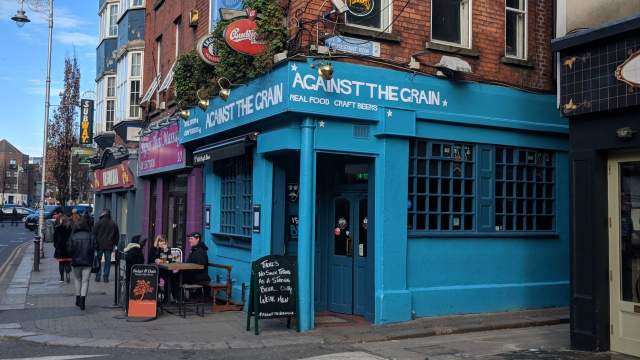If you are like me, you probably order the same pint of beer almost anywhere you go. You become accustomed to the taste of a particular lager you fancy, even though they often have largely the same taste. In some cases drinking the same beer time and time again can eventually become boring. After some time you might not even pay attention to the flavour any more and drink it solely as a matter of habit when out socialising.
However, all that may change soon with the development of new scientific techniques for creating beer and wine with strange new flavours. Aromagenesis is a collaborative project with scientists from around the world, including Trinity’s very own Dr. Ursula Bond of the microbiology department. The aim of the project is to investigate new techniques of beer formation as well as the generation of new yeast strains for improved flavour in beer and wine. Finally, pint snobs can stop arguing over which Dublin-brewed craft beer tastes best and unite in support of this new research.
“The yeast strain that is used when brewing the beer is what gives that beer most of its flavours.”
Beer is brewed by placing a sugar source, usually barley, and yeast in to water. Hops from the plant Humulus lupulus are usually added in to produce that bitter flavour that most lagers possess. The yeast’s enzymes take the sugar and break it down in a process called glycolysis. Fermentation then follows, with the products of glycolysis converted into alcohol and carbon dioxide. The yeast strain that is used when brewing the beer is what gives that beer most of its flavours.
Aromagenesis focuses on changing these yeast strains in order to give new and interesting flavours. One method of creating these strains is to accelerate the evolution of the yeast. Researchers do so by introducing mutations to the genome of existing yeast strains and letting the yeast reproduce. They also make use of the newly developed CRISPR (Clustered Regularly Interspaced Short Palindromic Repeats) gene editing technique, in which certain sections of the yeast’s genome can be cut and added to, in order to change the physical characteristics of that strain. All of this is done to change the protein structure of the yeast so that new and complex flavours can arise when producing beer or wine.
The use of hybrid genes is also being explored by this project. Hybrid genes arise when short pieces of DNA from two entirely different strains are taken and recombined together to form a hybrid of the two distinct individuals. The project aims to investigate how these hybrid strains may alter the outward appearance and physical characteristics of the hybrid yeast and whether or not these hybrids can offer up their own unique and interesting flavours when used for beer and wine production.
“Despite some resistance however, there is no denying that the evolution of pints is accelerating.”
The emergence of craft beers has so far led the way in the quest for new flavours and testament to this is the surge in popularity of ‘home-grown’ brewing companies across Ireland. There is a greater focus in younger generations on the flavour of alcoholic drinks. This brings with it a high demand for new beers and independant wines that taste unique and different to the usual mass produced beers such as Heineken or Carlsberg. Some may view this as ‘snobbishness’ for beer as they wonder why people cannot just be happy with the classics. Despite some resistance, however, there is no denying that the evolution of pints is accelerating. The industry of craft brewing is exploding in Dublin at the moment as more and more pubs that exclusively sell craft beer are popping up throughout the capital. Pubs like the Porterhouse and Against The Grain have become extremely popular off the back of demand for new flavours driven mostly by younger generations. This cutting edge research to create even more flavours will hopefully add to the work done by amateur brewers so far. But no matter where we stand on these emergent craft beers, most of us will agree that nothing beats four cans of Pražský for a tenner.






